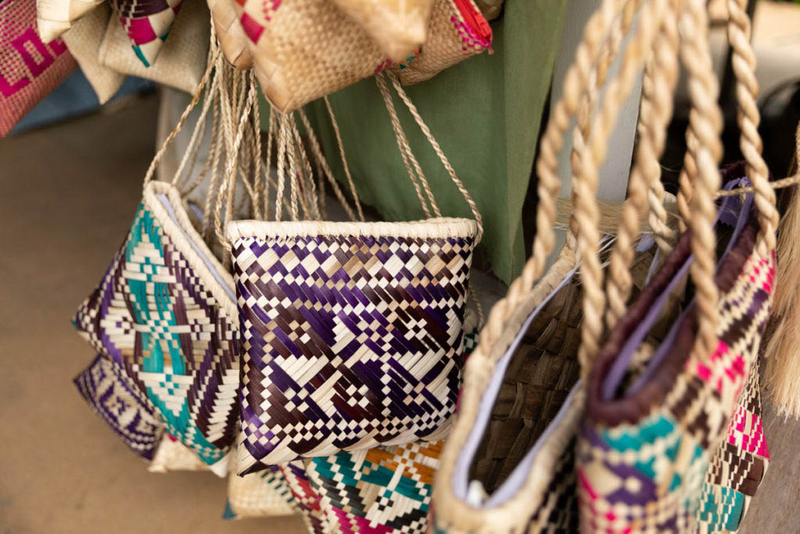Things to know about buying handicraft
When purchasing handicrafts in Vanuatu, you’re not just acquiring a unique piece of art—you’re also supporting local communities and preserving cultural traditions. Here’s what you need to know to make your shopping experience meaningful and compliant with international regulations.
Handicraft market in Port-Vila
You will find a handicraft market just next to the market in Port-Vila. The “mamas” will be delighted to sell you their unique pieces, whether it’s a mission dress, a pandanus bag, wood carvings, or jewelry made from shells or lava stone. Handicrafts made in Vanuatu allow you to bring back wonderful souvenirs from your trip and make great gifts for your loved ones.
Purchasing handicrafts in Vanuatu is more than just shopping—it’s a way to connect with the local culture and make a positive impact on the community
Espiritu Santo and the surrounding islands
Together, Espiritu Santo and its surrounding islands make up the province of Sanma. Its capital Luganville is an important hub for the northern provinces so you can find plenty of handicrafts from islands like Pentecost, Ambae and the Banks islands there. Carvings are from local timbers of tam-tams, animals, and finely woven mats and baskets. There is also a thriving community of contemporary tailors and hat makers, a large handicraft market at the wharf on days when a cruise ship is in town.
Support local communities
Handicrafts in Vanuatu are often made by artisans from rural communities, using techniques passed down through generations. By buying these products, you’re directly contributing to the livelihoods of these talented craftspeople. Your purchase helps sustain their families, preserve their culture, and keep these age-old traditions alive.

Vanuatu Made
To promote and preserve these unique aspects, the "Vanuatu Made" initiative was launched. This initiative aims to highlight and support products that are authentically produced in Vanuatu.
It’s a mark of genuine craftsmanship and a way to ensure that your money goes back into the local economy, supporting the artisans who made the product.

Phytosanitary regulations and fumigation
If you plan to take your handicrafts home, especially to another country, it’s important to be aware of phytosanitary regulations. Some handcrafted items made from natural materials, like wood or plant fibers, may require fumigation to prevent the spread of pests and diseases. Ensure that you check the import regulations of your home country and comply with any fumigation requirements. Many vendors in Vanuatu are familiar with these regulations and can guide you on how to properly prepare your purchases for export.


